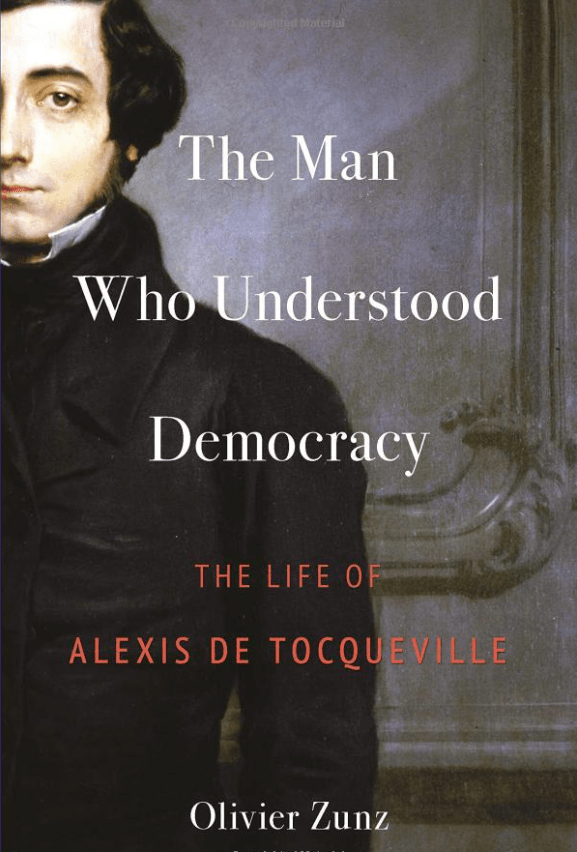From The Wall Street Journal:
The title of Olivier Zunz’s biography of Alexis de Tocqueville—“The Man Who Understood Democracy”—would appear to be a direct appeal to readers who believe democracy is, to use one popular formulation, “under assault.” Anxiety over the fate of democracy has become the de rigueur emotional stance of the nation’s enlightened influencers. Margaret Sullivan, the Washington Post’s media columnist, asserted this week that “our very democracy is on the brink” and that one of the country’s major parties has dedicated itself to “the destruction of democratic norms.” Paul Krugman’s column in the New York Times, headlined “DeSantis, Disney and Democracy,” registered the same sentiment. Barack Obama, in a speech on “disinformation” at Stanford University on April 21, spoke mournfully of “democratic backsliding” and “the weakening of democratic institutions” at home and abroad.
In none of these or a thousand other lamentations is it clear what the authors mean by “democracy.” It is perhaps an opportune time to consider the life and work of a man who, as this book’s title has it, “understood” the thing Mr. Obama et al. want to rescue and revive.
Mr. Zunz, a professor emeritus of history at the University of Virginia and a respected scholar of Tocqueville, has written an exhaustively researched and discretely focused biography of the great Frenchman. Readers unfamiliar with “Democracy in America” are best advised to read that work first. Its two volumes appeared in 1835 and 1840, after Tocqueville and his companion, Gustave de Beaumont, spent 9 ½ months touring the American Northeast, Midwest and South in 1831-32. “Democracy in America” is, as its reputation suggests, a masterpiece of political reflection. It is also, as I was reminded by Mr. Zunz’s biography, a work of stylistic grace. Tocqueville—this is apparent even in English translations of his work—constantly revised his writing to achieve maximum clarity and felicity.
The crucial fact of Tocqueville’s upbringing and early adult years—he was born into an aristocratic family in 1805—was that a large number of his elder relatives had lost their property or their heads during the Terror of 1793-94. Surviving nobility were permitted a gradual return, and the Bourbon monarchy was restored after the fall of Napoleon in 1814-15, though in constitutional, not absolutist, form. Tocqueville’s familial provenance led many to assume that he would defend the pro-Bourbon, backward-looking “Legitimist” cause even after the July Revolution of 1830 and the inauguration of the more liberal and reformist regime of Louis-Philippe.
. . . .
Mr. Zunz’s biography situates Tocqueville’s great treatise in its French context. Americans, this reviewer included, tend to read “Democracy” as though the author were explaining America to Americans. He was in fact asking France’s political class to consider the promise—and the perils—of political equality.
Tocqueville often used the term “equality” as a synonym for democracy, since democratic reforms by definition bring citizens into closer parity with each other. “Democracy in America” sought in essence to answer this question: Would the work of cultivating equality destroy liberty? That question haunts every modern democratic state, but the United States more so than any other.
Tocqueville, despite a retiring demeanor and ill health, would use his reputation as a first-rate political mind to press his way into elective government. There, too, as Mr. Zunz relates, he would labor to reconcile liberty and equality in French political life. In the 1840s, as a member of the Chamber of Deputies (the French Parliament’s lower chamber), he tried to find a middle path between the French left’s insistence that all children be educated by the state and the clergy’s use of education as a way to retain political influence. He didn’t succeed in that effort, but the episode reminds us that problems of educational curriculum were known to societies far less pluralist than our own.
Link to the rest at The Wall Street Journal (should be a free perma-link)

Barack Obama, in a speech on “disinformation” at Stanford University on April 21, spoke mournfully of “democratic backsliding” and “the weakening of democratic institutions” at home and abroad.
“If you like your doctor, you can keep your doctor.”
“If you like your plan, you can keep your plan”
“We’ve got shovel-ready projects all across the country…the minute we can get those investments to the state level, jobs are going to be created.”